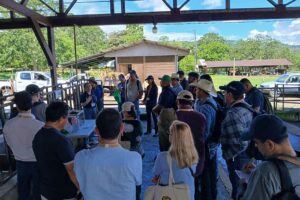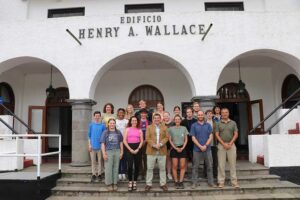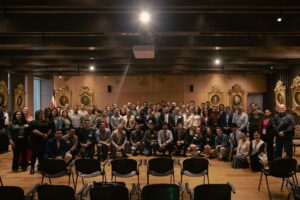Initiates online course to strengthen the fight against climate change in Bolivia
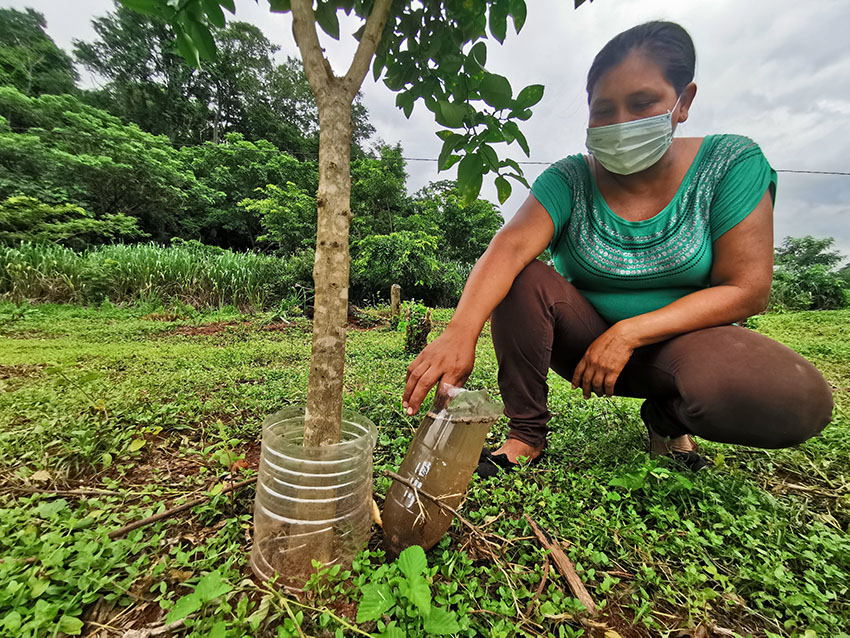
- The Program has been developed based on CATIE's extensive experience in mobilizing financial resources in the fight against the climate crisis.
May 4, 2023. This Thursday was held the opening event of the "Capacity building program for the management of climate finance in the Plurinational State of Bolivia", a virtual course developed by CATIE (Tropical Agricultural Research and Higher Education Center) which aims to train professionals in that country in the management of funds for climate projects.
The course is aimed at people working on climate change management, planning and financing in sectoral agencies and ministries, in non-governmental organizations, as well as consultants or workers in private companies interested in climate initiatives.
The opening ceremony, also held virtually, was attended by prominent government and academic personalities. The activity began with the words of the FAO-Bolivia representative, Mr. Rodrigo Roubach, who thanked the participants for their presence and highlighted the importance of the program for the country. He was followed by the words of Barbara Jarshell, technical project leader for forestry, restoration and biodiversity of the FAO Regional Office for Latin America and the Caribbean.
The director of CATIE's Education Division, Fernando Casanoves, and the program coordinator, Vladimir Valera, also participated.
"This program has been developed based on CATIE's extensive experience in mobilizing financial resources in the fight against the climate crisis and its work in delivering the International Diploma in Climate Finance on five previous occasions," Valera said.
At this moment, more than 150 people from Latin America have been trained in this important subject.
The justification for the program is based on the need to respond to Bolivia's international commitments, such as those established in the Paris Agreement, to facilitate the implementation of climate change mitigation and adaptation actions in developing countries. In addition, a great demand for this financing has been identified in Latin America, which represents a great challenge to achieve the objectives of the Paris Agreement.
In recent years, there have been important and continuous changes in the international climate finance architecture, especially with the start of operations of the Green Climate Fund in 2014, which requires continuous capacity building for countries such as Bolivia. Therefore, this program will strengthen national capacities for direct access to this financing.
Finally, Arelis Araya, Moodle Specialist (Virtual Classroom) of the Education Division presented the platform to be used in the program, which consists of a total of 48 hours, divided into 16 hours of synchronous sessions and 32 hours of asynchronous activities.
After the opening, the participants and facilitators of the course were introduced. It was noted that, of the 26 participants in the program, 10 are women and, in addition, three Vice Ministers were present: Carlos Guachalla, Vice Minister of Planning and Coordination; Eduardo Toromayo, Vice Minister of Water Resources and Irrigation; and Natalia Salas, Vice Minister of Foreign Affairs.
At the end of the program, participants are expected to be trained in the management of funds for climate projects, with a holistic view of the sources and opportunities of resources and the requirements, processes and challenges involved in financing climate actions for Bolivia.
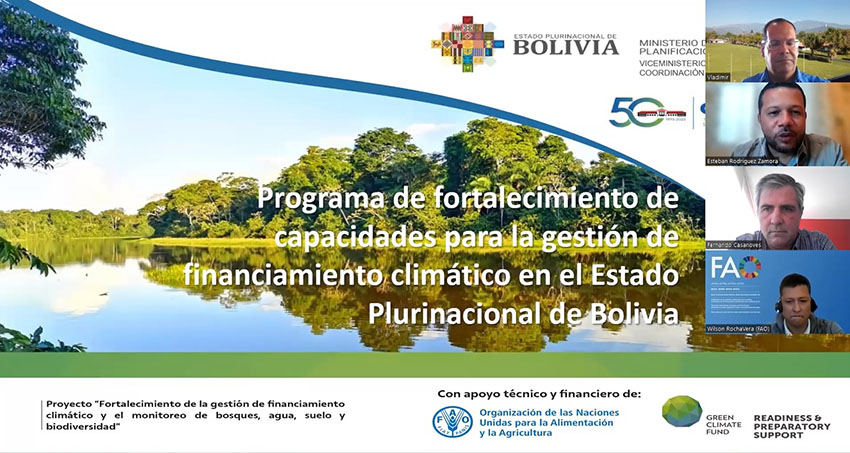
More information:
Vladimir Valera
Program Coordinator
vladimir.valera@catie.ac.cr
Written by:
Esteban Rodríguez Zamora
esteban.rodriguez@catie.ac.cr
Tel: (506) 2558 2074
Communicator
Information Technology and Communication

